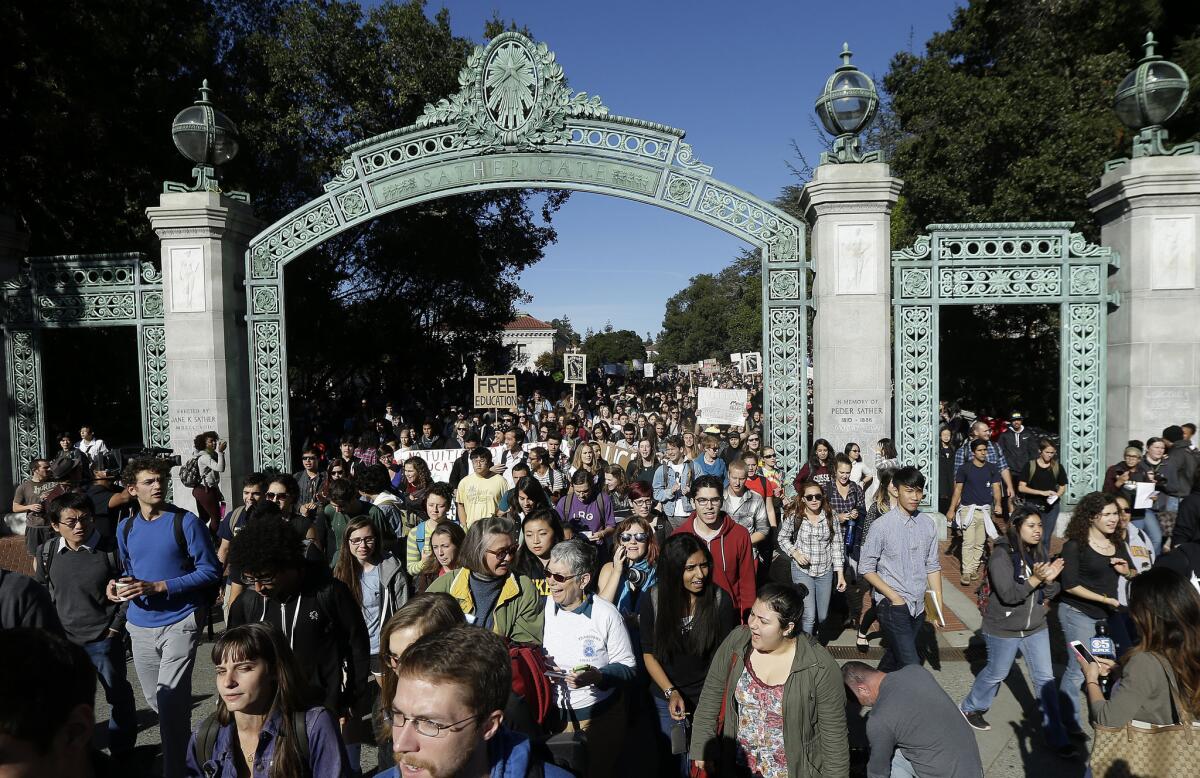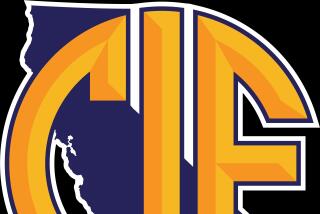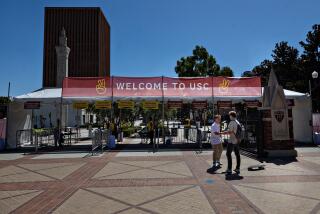UC regents table proposal to link coaches’ bonuses to athletes’ grades

After spirited debate over how to improve student athletes’ classroom performance, the University of California regents on Thursday blocked a proposed new policy that would have linked coaches’ compensation to their teams’ grades and graduation rates.
Several regents, including Gov. Jerry Brown, said they thought the plan’s academic standards were too low and would have little impact because all but one of the more than 120 UC varsity teams already meet them. Other regents said they were worried that UC would lose important athletes to other schools if the requirements were set too high and that some low-income and minority students could lose an avenue to professional sports careers.
After hearing those concerns, George Kieffer, chairman of the regents’ compensation committee, moved to pull the matter from an imminent vote and said that the proposal would be revised in coming months. Also withdrawn was a related and similarly controversial item that would have allowed for quick hiring of high-salary athletic coaches without the usual approval of the full Board of Regents.
“Listening to the board discussions, it was determined there was substantial disagreement and there ought to be a further review,” Kieffer said of both proposals.
A task force appointed by UC President Janet Napolitano had proposed that all new and updated contracts deny coaches their potential hefty incentive bonuses — even those linked to winning seasons — if the teams’ academic averages for students on athletic scholarships were too low. The plan was to use the same complicated point system and minimum standards of grades, six-year graduation rates and other measures that the NCAA requires for teams to compete in championships.
Across the UC system, only UC Riverside’s men’s basketball team failed to hit those academic marks in a recent accounting. As a result, Lt. Gov. Gavin Newsom, who is a regent, said that showed the proposal was meaningless.
“We are doing almost nothing here under the illusion we are doing something,” he said.
Brown referred to the classical ideals of ancient Greece and Rome, which better integrated the body and mind, he said. The academic standards in the plan were too low, he said, adding that it “distorts the fundamental essence of the university and its capacity to be a leader and enjoy and command widespread support from the people of California.”
However, regent Eddie Island, who often speaks of concerns affecting low-income and minority students, said that UC should not “impose a cultural arrogance” and set standards too high for athletes. Some students enroll at UC to gain the experience and the record required by professional teams, not to get a college degree right away, he said.
“We ought not put harmful stumbling blocks in the way of young people’s dreams” of pro careers, he said.
UCLA athletics director Dan Guerrero said that the University of Maryland is the only U.S. university that now links academics to all coaches’ compensation and that tougher requirements at UC could have unintended consequences.
It might push students into less rigorous majors that could later hurt their careers and could lead coaches to demand higher base salaries that are not affected by bonuses, he said. Campuses, he added, may decide to recruit “the better student, not the better athlete.”
Hefty money is at stake. Besides base salaries above $1 million a year, highly ranked football and basketball coaches are eligible for hundreds of thousands of dollars in bonuses depending on the team’s record, among other things. A handful of UC coaching contracts already have some link to their team’s academic record, but not in any systematic way. (Most coaches’ salaries come from television rights, ticket sales and other non-state revenue.)
In other matters, the regents approved the hiring of three executives after a debate over their salaries of $280,000 and more. Napolitano said that the new salaries are less than those of the officials they are replacing and that her central office has cut positions and costs. However, several regents said such high pay was unseemly when the university is threatening tuition hikes and asking the state Legislature for more funding.
Rachael Nava, currently chief operating officer for a nonprofit healthcare plan, was hired as UC executive vice president and chief operating officer with a starting salary of $330,000. It would increase to $370,000 by her third year. Julie Henderson, who has been a UC senior policy advisor on external relations, was promoted to senior vice president of public affairs, with a $280,000 annual salary. Nelson Peacock, who was an official in the U.S. Department of Homeland Security when Napolitano headed it and later became a senior advisor to her at UC, will be senior vice president for government relations, and continue his $280,000 salary.
Thirteen regents voted to approve the hirings and five voted no: Brown, Newsom, former Assembly speaker John Perez, Regent Gareth Elliott and student Regent Sadia Saifuddin.
larry.gordon@latimes.com
Twitter: @larrygordonlat
More to Read
Sign up for Essential California
The most important California stories and recommendations in your inbox every morning.
You may occasionally receive promotional content from the Los Angeles Times.











